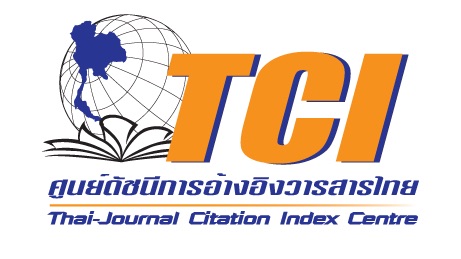The Development of the Elderly’s Quality of Life by Using the Buddhist Oriented Principles (Bhavana IV) in Suphan Buri Municipality, Suphan Buri Province
Keywords:
Developing Quality of Life, Elderly, Buddhist Oriented Principles, Bhavana IVAbstract
The research consisted of objectives as follows to: 1) study the level of development of the elderly’s quality of life using Buddhist oriented principles (Bhavana IV) and the elderly’s quality of life, 2) study the relationship between development of the elderly’s quality of life by using the principle (Bhavana IV) and the elderly’s quality of life, and 3) propose the guidelines for developing the elderly’s quality of life using Buddhist oriented principles in Suphan Buri Municipality, Suphan Buri Province. The mixed method research was applied in this research. For quantitative study, 369 people over 60 years old in Suphan Buri Municipality, Suphan Buri Province were the samples selected by using simple random sampling method. The questionnaire was used for data collection. The alpha coefficient is 0.958. The data were analyzed by using Statistical Package for Social Sciences, by calculating frequency, percentage, mean, and standard deviation, and Pearson’s product moment correlation coefficient was used for testing the hypotheses. For qualitative study, the data were collected by using interview form from 9 key informants, selected by using purposive sampling method, consisting of 1 Mayor, 2 Deputy Mayors, 1 Municipal Clerk, 1 Director of Social Welfare Division, 2 community leader representatives, and 2 elderly representatives. The interview data was analyzed by using the Content Analysis Technique. The results were as follows: 1) The development of the elderly’s quality of life based on the Buddhist principles (Bhavana IV) was overall at the high level. And, the quality of life of the elderly was over at a high level, 2) The development of the elderly’s quality of life based on the Buddhist principles (Bhavana IV) and the elderly’s quality of life are shown to be positively correlated in the same direction at a high level, with a statistical significance of 0.01, and 3) The guidelines for developing the elderly’s quality of life using Buddhist oriented principles (Bhavana IV) were as follows: 3.1) Kai Pawana aspect: organizations relevant to the promotion of the elderly’s quality of life had to cooperate in organizing continuous projects on promoting the health of people in community, 3.2) Sila Pawana aspect: there should be promotion and support for the elderly and people in community to join the religious activities together according to tradition, culture, and various important days, to create love and unity among people in community, 3.3) Chitta Pawana aspect: the municipality should set programs and policy in thoroughly taking care of the elderly, together with organizing activities for the elderly to join in order to create relationship, respect, and unity, between the elderly and others, and 3.4) Panya Pawana aspect: there should be social welfare for developing the elderly’s quality of life, so that the elderly could live their lives happily.
References
กองวิชาการและแผนงาน เทศบาลเมืองสุพรรณบุรี. (2564, 18 กันยายน). ข่าวประชาสัมพันธ์ เทศบาลเมืองสุพรรณบุรี. http://www.suphancity.go.th/news1487.html
กระทรวงสาธารณสุข. (2563, 24 เมษายน). รายงานการตรวจราชการกระทรวงสาธารณสุข ประจำปีงบประมาณ พ.ศ. 2563. https://apps.hpc.go.th/dl/ web/upFile/2020/08-5014-20200804233 904/65f65e687a364d 6fdd5bca2a68210b93.pdf
กุลวรา พิมใจใส. (2557). การเตรียมความพร้อมก่อนเกษียณอายุตามหลักภาวนา 4 ของบุคลากรมหาวิทยาลัยมหาจุฬาลงกรราชวิทยาลัยส่วนกลาง [วิทยานิพนธ์ พุทธศาสตรมหาบัณฑิต]. มหาวิทยาลัยมหาจุฬาลงกรณราชวิทยาลัย.
ชลธิชา จิรภัคพงค์ และคณะ. (2561). สุขภาวะพระสงฆ์ : การพัฒนารูปแบบการเสริมสร้างสุขภาวะตามแนววิถีพุทธโดยการบูรณาการสาธารณสุขเพื่อคุณภาพชีวิตที่ดีของจังหวัดลำปาง. รายงานการวิจัย, มหาวิทยาลัยมหาจุฬาลงกรณราชวิทยาลัย วิทยาเขตแพร่.
ปิยภรณ์ เลาหบุตร. (2557). คุณภาพชีวิตของผู้สูงอายุในชุมชนหมู่ 7 ตำบลพลูตาหลวง อำเภอสัตหีบ จังหวัดชลบุรี [งานนิพนธ์รัฐประศาสนศาสตรมหาบัณฑิต]. มหาวิทยาลัยบูรพา.
พระธรรมปิฎก (ป.อ.ปยุตฺโต). (2556). การพัฒนาที่ยั่งยืน (Sustainable development) (พิมพ์ครั้งที่ 13). มูลนิธิโกมลคีมทอง.
ภัทราภรณ์ ด้วงเรือง และนัทนิชา หาสุนทรี. (2563). การพัฒนาคุณภาพชีวิตผู้สูงอายุของเทศบาลนครนนทบุรี จังหวัดนนทบุรี. วารสารมนุษยศาสตร์และสังคมศาสตร์ มหาวิทยาลัยราชพฤกษ์, 6(1), 122-134.
มูลนิธิสถาบันวิจัยและพัฒนาผู้สูงอายุไทย. (2563). สถานการณ์ผู้สูงอายุไทย พ.ศ. 2562. มูลนิธิสถาบันวิจัยและพัฒนาผู้สูงอายุไทย.
สิน พันธุ์พินิจ. (2554). เทคนิคการวิจัยทางสังคมศาสตร์ (พิมพ์ครั้งที่ 2 ปรับปรุงใหม่). บริษัท จูนพับลิซซิ่ง จำกัด.
สำนักงานคณะกรรมการพัฒนาเศรษฐกิจและสังคมแห่งชาติ. (2560). แผนพัฒนาเศรษฐกิจและสังคมแห่งชาติ ฉบับที่ 12 (พ.ศ. 2560-2564). สำนักงานคณะกรรมการพัฒนาเศรษฐกิจและสังคมแห่งชาติ สำนักนายกรัฐมนตรี.
อนุกูล บุญรักษา. (2554). การพัฒนาทรัพยากรมนุษย์ตามหลักภาวนา 4 ของกองบัญชาการมณฑลทหารบกที่ 31 [วิทยานิพนธ์พุทธศาสตรมหาบัณฑิต]. มหาวิทยาลัยมหาจุฬาลงกรณราชวิทยาลัย.
Taro Yamane. (1973). Statistics: An Introductory Analysis (3th ed.). Harper and Row Publication.
Downloads
Published
How to Cite
Issue
Section
License

This work is licensed under a Creative Commons Attribution-NonCommercial-NoDerivatives 4.0 International License.







